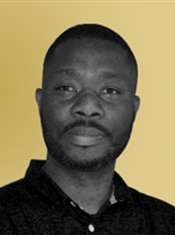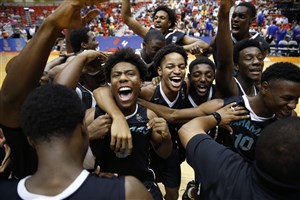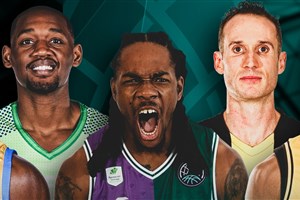
Where do African teams stand ahead of the FIBA Basketball World Cup 2019?
LEEDS (Julio Chitunda's African Message) - The FIBA Basketball World Cup 2019 starts on August 31 across eight Chinese cities, and for the first time in the history of the competition five African countries will take part in the event.
Under FIBA's new competition system, which took effect with the start of the continental World Cup Qualifiers in November 2017, FIBA's flagship tournament saw its participating teams increase from 24 to 32 with Africa being allocated two extra spots.
Angola, Cote d'Ivoire, Nigeria, Senegal and Tunisia head to East Asia looking to make history.
Drawn across five different groups, the African contingent have pre-established three important goals: Advancing as far as possible in the competition; Try to reach the quarter-finals for the first-ever, and, no less important, try to become the continent's best-placed team to ensure direct qualification for next year's Tokyo Olympics.
But where do African teams ahead of the FIBA Basketball World Cup 2019?
ANGOLA
The Southern Africans haven't missed a World Cup edition since 2002. While they head to China with an experienced roster that includes four-time World Cup participant Eduardo Mingas and Carlos Morais - one of the best players on the continent of Africa - facing Italy, Philippines and Serbia in Group D in Foshan seems to be their biggest challenge in years.
ESTAMOS APURADOS PARA O MUNDIAL 2019 💯
— Angola Basketball (@AngolanBasket) December 1, 2018
FIBA Basketball World Cup 2019#FIBAWC 2019, here we come 🇦🇴🇦🇴🇦🇴
Dedicação, Suor e lá 💪💪#OBRIGADO (a) 🙏🏀🏀🏀#Angola #China2019 @FIBAWC @nbbfonline @ftbb_tunisie pic.twitter.com/ZrOdcrOs81
Over the course of the last two weeks, the Angolans held a training camp in China, and on Tuesday they will travel to Korea to play the host country, Lithuania and Czech Republic.
In China, last week, Angola recorded three defeats against China (62-73), Puerto Rico (64-66), and China's CBA outfit Liaoning Flying Leopards (70-71), although they beat Croatia 93-73.
The three defeats and one victory suggest that Will Voigt's team faces a lot of room for improvement.
SENEGAL
The Senegalese took the 2014 tournament in Spain by a storm after shocking European heavyweight Croatia before advancing to the Round of 16, where they fell to hosts Spain at a packed Palace de Deportes de la Comunidad in the capital Madrid.
🇸🇳 Senegal's final roster is out! #FIBAWC #SenegalGotGame
— Basketball World Cup (@FIBAWC) August 16, 2019
➡ https://t.co/7YDbKH0t46 pic.twitter.com/HLiGpe9I4z
And after winning 10 out of their 12 African Qualifiers games, things looked great for Senegal.
However, in a surprising move by the Senegalese Basketball Federation, head coach Abdou N'diaye - who guided the team throughout the African Qualifiers - was replaced by fellow Senegalese Moustapha Gaye and Gorgui Dieng - the team's best player pulled out of the preliminary squad.
In Verona, Italy, Senegal lost to the World Cup bound Russia (73-56) and Italy (111-54). In Istanbul Senegal came up short 94-59 against Turkey. And despite a 75-69 win against Venezuela, the three losses raised more questions than answers about the team's readiness.
Après l'Afrobasket place à la coupe du Monde #FIBA 2019.
— BASKET-BALL SÉNÉGAL (@FSBBOFFICIEL) August 19, 2019
Les Lions ont reçu le Drapeau 🇸🇳 ce matin des mains du Ministre des Sports M.Matar Ba.#SenegalGotGame #FIBAWC #kebetu #Team221 pic.twitter.com/710RQfyUfl
But the good thing is that Maurice Ndour was handed the captain role, and back in Dakar, on Monday the team received the country's flag from the Minister of Sports.
The clock is ticking fast for coach Gaye and his players, but considering that Senegal have a history of rising to the occasion when it matters most, let's give Senegal the benefit of the doubt.
They will play their Group H campaign against Australia, Lithuania and Canada.
COTE D'IVOIRE
THEY DID IT! Cote d'Ivoire qualify as the best 3rd of the #FIBAWC African Qualifiers 🇨🇮🎉#ThisIsMyHouse pic.twitter.com/x4bH3PhgkX
— Basketball World Cup (@FIBAWC) February 24, 2019
The Ivorians aren't just happy to be back in the competition for the third time in their history (2010, 1986 and 1982), they aim to transform their underdogs' status into what stalwart point guard Souleyamane Diabate calls a wake-up call to the basketball world.
Despite being the lowest-ranked team in the entire competition, the Ivorians like to reiterate that they will go up against hosts China, Poland and Venezuela in Group A in Beijing without fear, and the addition of Deon Thompson gives Cote d'Ivoire high hopes in the battle near the basket.
So far, they beat Switzerland (69-68), but they lost to Italy (69-58), Spain (79-62) and the Philippines (73-63) in Malaga.
"Everything has been sorted out now. As we speak we are on our way to the airport to travel to Beijing, and everything is fine with our team," Diabate told me.
Facing hosts China on Day 1 will be a challenge for the ages for Cote d'Ivoire, but taking on Venezuela and Poland will crucial.
NIGERIA
Almost two months into their preparations, which started in Atlanta, and saw the "D'Tigers" share one win apiece against Canada and two wins against the Dominican Republic.
D'Tigers will continue their preparation in Lagos after a record of 3-1 from their friendlies against Dominican Republic and Canada.
— 9jainNBA (@NigeriansinNBA) August 13, 2019
The final 12 alongside @alexnwora will depart Nigeria for China on August 19.
Buzzing for what the team will do @FIBAWC
Unquestionably the most talented African team in the competition (they count seven players with NBA experience), Nigeria have never hidden their intentions of reaching the podium in China.
And this statement by Nigeria head coach Alex Nwora says it all:
Ranking means little for me. We have a goal of being one of the teams on the podium at the end of the tournament. Ranking is great, but that is not where we want to be. We want to be number 1 if we can and that is what we are working towards.”#NBBF#NigeriaGotGame#WorldGotGame pic.twitter.com/BEgDiaaAqA
— #NBBF (@nbbfonline) August 15, 2019
Nigeria will play their Group Phase campaign against Korea, Russia and Argentina and they remain a strong contender in their group.
TUNISIA
Unlike most of their African counterparts, the reigning African champions Tunisia have spent the past two months holding training camps and playing European opposition.
🇹🇳 Tunisia also qualified for the FIBA Basketball World Cup 2019 tonight! They are the 2nd team from the African Qualifiers to advance.#FIBAWC pic.twitter.com/oCAAasCx5U
— Basketball World Cup (@FIBAWC) September 15, 2018
With Mario Palma - the only full-time head coach among the five African teams - the North Africans continue to dream big even though they will go up against title contender Spain, in Group B before facing Puerto Rico and Iran.
Palma kept the backbone of the team that inspired Tunisia to a 10-2 mark in the African Qualifiers.
Over the past two months, Tunisia held training camps in France, Czech Republic. In France they registered the following results: Turkey vs Tunisia (64-54); France vs Tunisia (94-56). In Prague, Tunisia lost to the hosts 80-66 before beating Poland (60-47).
Can they finish in the first two places of their group to advance to the next round? Tunisia must try to win all three games rather just focusing on Puerto Rico and Iran.
Julio Chitunda
FIBA
FIBA's columnists write on a wide range of topics relating to basketball that are of interest to them. The opinions they express are their own and in no way reflect those of FIBA.
FIBA takes no responsibility and gives no guarantees, warranties or representations, implied or otherwise, for the content or accuracy of the content and opinion expressed in the above article.

















